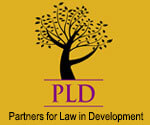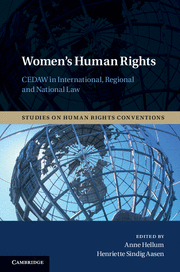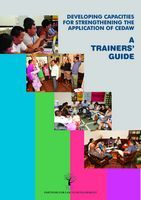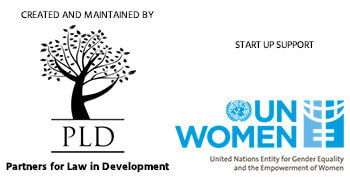Review of Reports
The Committee reviews the initial and periodic reports submitted by the state parties. The Committee intends for consideration of a report to consist of constructive dialogue with the representatives of the reporting state to improve the situation. Consequently, the presence of representatives of the reporting states is not only permitted but necessary for the examination of their respective country reports.
The Committee has adopted reporting guidelines to assist the state parties in preparing their initial and subsequent periodic reports. The Committee strongly encourages all state parties to submit reports in accordance with the Common Core Document (CCD) and the Harmonized Reporting guidelines. This will reduce the need for further information when the Committee considers a report and will help the Committee to consider the situation regarding women’s human rights in every state party on an equal basis. The Committee keeps these guidelines under review and updates them as and when appropriate.
For further information on the reporting guidelines please click here
Government Report
According to Article 18 of the Convention, each state party to the Convention has to submit an initial report to the UN Secretary-General within one year of ratification. The report should contain information on the legislative, judicial, administrative, and other measures that have been adopted and are in place for the implementation of the Convention.
The initial Convention-specific report or document, together with the Common Core Document , constitutes the state party’s initial report and is the state party’s first opportunity to present information before the Committee describing the extent to which the state party’s laws and practices comply with the provisions of the Convention. Thereafter, the state party is required to submit periodic reports every four year reporting on the progress made in the implementation of CEDAW. The Committee can also demand reports from the state parties on an exceptional basis, that is, beyond the usual reporting format and schedule.
In the case of long overdue reports, the state parties can submit all the reports together as combined periodic reports. The periodic report should focus on the period between the consideration of the previous report and the presentation of the current report. Many state parties have combined their initial and periodic reports.
For information on the Harmonized Guidelines on reporting under international human rights treaties, including the guidelines on a Common Core Document and treaty-specific documents, click here.
NGO Report
NGOs play a strategically important role and contribute to the Committee’s activities before and during the implementation of the monitoring procedures of the Convention and its Optional Protocol. NGOs also often play a catalytic role in enhancing the implementation of the Convention at the national level. Since 1988, NGOs have submitted alternative/shadow reports for the Committee’s consideration of state party reports.
Civil society organizations can come together to present an alternative report or shadow report to the Committee when their country is scheduled for reporting. Alternative reports are written by NGOs in the absence of a government report. Shadow reports are also submitted by NGOs in addition to government reports to provide additional information about the state party to the Committee. This report serves as a shadow document, which can highlight or fill in the gaps in the government report.
In 2001, the Committee included the following statement in its revised Rules of Procedures, Rule 47 on NGOs: “Representatives of non-governmental organizations may be invited by the Committee to make oral or written statements and to provide information or documentation relevant to the Committee’s activities under the Convention to meetings of the Committee or to its pre-sessional working group.”
To read the statement issued by CEDAW on its relationship with non-governmental organizations, click here.
General Recommendations
The General Recommendations are interpretative comments on the different articles of the Convention or the thematic areas addressed by it. Until date, 28 General Comments have been issued by the Committee. Some important General Recommendations (hereafter referred to as GC) are: GC 19 on violence against women (VAW); GC 21 on women’s equality within marriage and family relations; GC 25 on temporary special measures; GC 26 on women migrant workers; and GC 28 on the core obligations of state parties under Article 2 of CEDAW. General Recommendations elaborate on the scope and nature of the Convention by addressing contemporary and cross-cutting issues that might not have been explicitly mentioned in the Convention earlier.
For texts of the General Recommendations click here
Concluding Observations
Concluding Observations, which were formerly known as Concluding Comments, are issued by the CEDAW Committee upon examination of the state party’s report. Concluding Observations are recommendations issued by the Committee to highlight the achievements of the state party in implementing the Convention or to identify the major areas of concern regarding which a state party needs to take action and which requires further improvement. Follow-up and implementation of the Concluding Observations are imperative for the state party. Concluding Observations serve as an advocacy tool to highlight the gaps in, or the limitations of, a particular law, policy, or programme, or to identify and point to ineffective government action on a particular issue or area of concern.
The Committee at its forty-first session introduced a follow-up procedure whereby it would include a request to individual state parties in the Concluding Observations on their reports calling for information on the steps taken by these state parties to implement specific recommendations contained in the Concluding Observations.
The Committee at its forty-fifth session decided on the methodology for the follow-up to the Concluding Observations, whereby a state party is requested to submit information within one or two years on the action it has taken to implement the recommendations selected under the follow-up procedure. Usually, two recommendations are selected for the follow-up procedure. NGOs are encouraged to submit alternative information for the attention of the Committee by the same deadline as the state party. All information received under this follow-up procedure is made available on the Committee’s website.
To check the Concluding Observations issued in regard to various countries in South Asia, see the Resource section.
The other page in this section of the website describes the Optional Protocol to CEDAW and the two mechanisms, that is, the Communications and Inquiry procedures.










